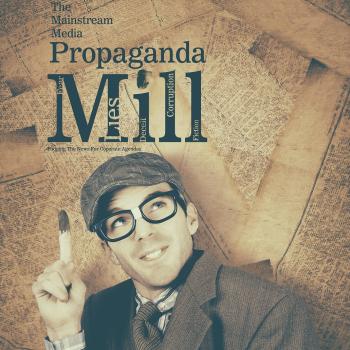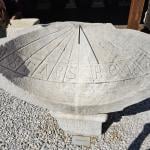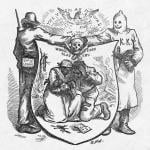
Last week, the US House of Representatives passed the “One Big Beautiful Bill Act.” The question arises, What would Jesus think of this?
In my last post, I began by asking, “How is the Gospel good news to the poor?”—which I intend to finish addressing in this post.
I began by challenging the popular understanding of the story of the widow’s mite (Mark 12:41-44; Luke 21:1-4). I noted that Jesus was not, as all too often asserted, praising the widow’s gift, though He certainly wasn’t condemning her. Instead, the fact that she gave “all she had to live on” (Mark 12:44; Luke 21:4) was evidence of religious leaders’ exploitation of the poor, or, as Jesus says, they “devour widows’ houses” (Mark 12:40; Luke 20:47).
I also pointed out that the Old Testament never required the poor to tithe (Deut 14:22-29). Instead, it called for provision and generosity toward the poor so that “there will be no poor among you (Deut 15:4).
I also noted that in the book of Acts, the early Church was depicted as fulfilling the provision of Deut 15:4 so that Luke says, “There was not a needy person among them (Acts 4:34).
“There will always be poor among you.”
It is tragic how Christians occasionally cite Jesus’ statement, “You always have the poor with you” (Matt 26:11; Mark 14:7), as proof that there will always be poor people around. Consequently, even though the command is, “You shall freely open your hand to him, and shall generously lend him sufficient for his need in whatever he lacks” (Deut 15:8), many fail to even make an effort because the fact that they will always be around confirms that there is nothing we can do about the poor.
The problem is that when Jesus says that there will always be poor among you, He is quoting from Deut 15:11. In both Deuteronomy and Jesus, this statement serves as a rebuke.
This is evident in that Deut 15:4 specifies that “there will be no poor among you.” The assertion, then, that “you will always have the poor with you” (Deut 15:11; Matt 26:11; Mark 14:7) is only true because they have failed to carry out God’s command to provide for those without.
How is the Gospel “good news” for the “poor”?
This brings us back to our opening question of the previous post: “In what way is the Gospel good news for the poor?”
There is no question that the Gospel is good news for everyone who believes. This, of course, would entail the rich and the poor. Why, then, does Jesus single out the poor and seemingly exclude the rich?
The answer to this resides in the fact that Jesus was proclaiming the arrival of God’s kingdom. In His kingdom, Jesus Himself is the King. And His people are called to carry out the principles of His kingdom, which include establishing a just society (or community in the NT context) in which “there will be no poor among you” (Deut 15:4).
This means that the poor, even if they do not come to faith in Christ, will experience the blessing that comes from the faithfulness of God’s people. That is, when God’s people “freely open your hand to him, and shall generously lend him sufficient for his need in whatever he lacks” (Deut 15:8), the poor are blessed.
Hence, the Gospel is good news to the poor!
What does this mean for us today?
To answer this question, we must first recognize the distinction between the context of the Old Testament (OT) laws, which were established for the people of God who lived within the theocratic state of Israel, and their application to the New Testament (NT) people of God, who are not restricted to a single nation.
Saying this does not render the laws today irrelevant or meaningless. As noted above, the first Christians indeed carried out the very principles and practices that the Deuteronomic covenant sought to establish.
However, when applying this law to a given state today, we must recognize that we cannot simply apply the biblical provisions directly to our nation’s laws. Things are most certainly far more complicated than that.
We can, however, make two significant applications to the present day.
First, within the community of God’s people (i.e., our churches or circles of faith communities), we are called to carry out the biblical provisions of giving and caring for the poor, just as the Church did in Acts 4.
Second, we may exhort the state to follow the biblical prescription by urging the wealthy (those who own land and houses—i.e., those with the means of making an “increase”) to give and make provisions for the poor.
We should not be surprised, however, when the state and those in power act in accord with their own interests, even though that comes at the expense of the poor and the marginalized. The rich and powerful often prioritize their own interests at the expense of the poor. This is how nations work.
NB: I will be flushing this out more in our YouTube series “Revelation Revealed.”
NBB: “But,” you might say, “Giving tax cuts to the wealthy is how an economy thrives.” This may have some truth to it. It is undoubtedly how the wealthy thrive. “And,” you might add, “We must not give too many handouts to the poor and those who refuse to provide for themselves. It only encourages laziness.” I suspect Jesus would have something to say to that.
The Church Today and the Poor
I believe that the Church has lost sight of Jesus’ kingdom and its implications for economics. This is evident in how we preach and teach the account of the Widow’s mite.
In addition, the standard approach to tithing too often demands that the poor give sacrificially. At the same time, the rich are merely asked to provide as much as a tenth.
That we have lost sight of Jesus’ economic program is evident today in how we charge for everything. Churches host events that cost, which customarily exclude the poor. Sure, it is great that many churches offer scholarships. However, the poor often become tired of having to ask for help.
Modern technology has made vast amounts of information accessible to many, except for those who are poor. Just the other day, I hit “play” on a podcast episode that I commonly listen to, only to find that the episode I wanted to listen to was for “paid subscribers” only. What?
How can we offer content that is an essential component of Christian discipleship only for paid subscribers? “You should hear what Jesus had to say about poverty. Of course, only those with means can access the content.
What’s the worst part of my experience? The podcast episode I was attempting to listen to was on the subject of “suicide.” I thought to myself, what if someone is counseling or working with someone who is genuinely struggling with life and is suicidal and needs to hear the thoughts on this podcast to help them counsel better, but they can’t because it costs money!! What are we doing?
How many rich blog posts written by biblical scholars, pastors, counselors, and other practitioners are hidden behind a paywall? It is as if their Substack has a warning label: Content not meant for the poor.
The Church and the Big Beautiful Bill
What would Jesus say about the “One Big Beautiful Bill Act.”
I’m sure there are many complex aspects of the “One Big Beautiful Bill.” Consequently, I’m uncertain how Jesus would have responded.
At the same time, I suspect that if Jesus were to hear about a multi-billion dollar tax break for the wealthy and that this tax break would be offset by multi-billion dollar spending cuts for the poor (not to mention that it would increase the federal debt by billions), He would be rolling over in His grave—except for the fact that He is not in a grave, but you get the metaphor.
In saying this, I realize that this post will raise some objections.
Some may suspect that I am a democrat, a socialist, or perhaps even worse, a communist. I don’t intend to respond to such accusations, except to say that I don’t subscribe to any of these designations. I am a biblical scholar striving to accurately discern what the biblical text says. I haven’t given enough time to what it may mean for a given economic or political structure in the contemporary world. And I do not intend to do so. I am not an economist or a political theorist, and I don’t intend to become one.
Am I correct? Perhaps.
But I am far more concerned that the people of God (the Church) today process information like this through a biblical lens.
In saying this, my desire is that we process the economic and political decisions of our nation through a biblical lens. This lens includes both what Jesus and the kingdom of God entail, as well as an understanding of how empires function.
In addition, we need to reckon with the possibility that we have turned many of the biblical injunctions on giving on their head.
So, I ask, “When it comes to money, giving, the rich and the poor, have we come to the text assuming that we are on “team Jesus” but failing to consider, although I indeed hope that we are on “team Jesus,” the fact that many of us are the rich that Jesus was speaking about?”
Does this mean that Jesus was rebuking us? Well, if we obey Him, then the answer is “no.”
Make sure to subscribe to the Determinetruth newsletter on Patheos to receive email notification every time a new post is uploaded (note: this is not a traditional newsletter; it simply means you will be emailed every time a new blog is posted).
At Determinetruth, we work independently of any church or institution. This allows us to speak more candidly (shall we say “prophetically”). We refuse to put these posts behind a paywall, which hinders the poor from accessing the information. But we can only continue these posts with the support of those of you who can afford to give. So, if you can afford to give $5, $10, $25, or $1 million/month, please do so. You can provide a tax-deductible contribution by following this link. Choose “Rob” in the dropdown menu.
Please share this post and let others know about determinetruth.
If you wish to view this blog on your smartphone through the Determinetruth app, download the “tithe.ly church” app and insert “determinetruth” as the name of the church you wish to follow. Once it is loaded, click on the “blog” icon, and it will automatically load.














